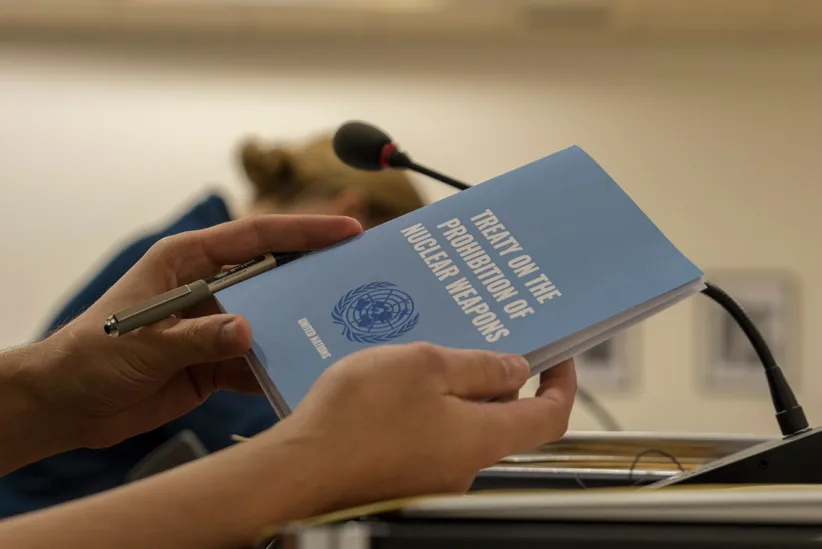Eight recommendations for the First Meeting of States Parties to the TPNW
The First Meeting of States Parties to the TPNW will be hosted by Austria, within a year after entry into force. At this meeting, the states parties will start taking important decisions that will shape the long-term implementation, institutionalisation, and universalisation of the Treaty. The Nuclear Weapons Ban Monitor has eight recommendations for the First Meeting of States Parties.

Article 8
- Article 8 of the TPNW provides for regular meetings of states parties, the first of which is to be held within one year of the Treaty’s entry into force.
- Subsequent meetings will be convened every two years unless the states parties agree otherwise, with a review conference to be held after five years and then every six years thereafter. Extraordinary meetings of states parties will be convened if one third of the states parties support a written request by any state party.
- The scope of work of the meetings is broad, with each meeting of states parties effectively mandated to consider any matters ‘pursuant to and consistent with the provisions of’ the TPNW, including its status and implementation.
1. The First Meeting of States Parties should elaborate and adopt a Declaration of the States Parties and a Plan of Action to promote the full implementation and universalisation of the TPNW and to further stigmatise nuclear weapons. The Declaration should demand that negotiations begin between nuclear-armed states, whether bilaterally or multilaterally (or both), on ending the new nuclear arms race and on comprehensive nuclear disarmament. The obligations for victim assistance, environmental remediation, and international cooperation and assistance should also be addressed in both the Declaration and the Action Plan in order to underline the importance of the provisions to address past use and testing and to provide guidelines for implementation. The role of civil society and international organisations as partners should be stressed throughout.
2. In accordance with Article 4, the First Meeting of States Parties is explicitly obligated to set the deadlines for the destruction of a state party’s nuclear explosive devices and for the removal of a foreign state’s nuclear weapons from any area under the jurisdiction or control of a state party. It should consider setting a deadline of ten years for the destruction of all nuclear weapons, renewable upon request to the other states parties where necessary. In ten years it may be feasible to achieve elimination of even the largest nuclear-weapon stockpiles (those of the United States and Russia). A far shorter deadline for removal of foreign nuclear weapons (hosting arrangements) – for example, no more than three years – would seem appropriate.
3. The First Meeting of States Parties could also begin consideration of the mandate and capacities of the competent international authority or authorities for verification of nuclear disarmament referred to in Article 4, and establish a working group on verification of disarmament obligations under the Treaty. The working group should engage with states not party to the Treaty with relevant expertise in the field.
4. The First Meeting of States Parties should strongly encourage each state party and signatory to the TPNW that has not yet done so to conclude and bring into force an Additional Protocol with the IAEA.
5. The First Meeting of States Parties should strongly encourage each state party and each signatory to the TPNW that has not yet done so to adhere to the CTBT.
6. The First Meeting of States Parties should establish standing committees to address issues related to victim assistance and environmental remediation, including needs assessments, programmatic responses, and international cooperation and assistance.
7. The First Meeting of States Parties may need to address issues of compliance, such as with respect to assisting or encouraging prohibited activities, and should consider establishing a standing committee for such matters.
8. The First Meeting of States Parties should call upon each state party to submit voluntary, regular reports on progress in implementing the Treaty.